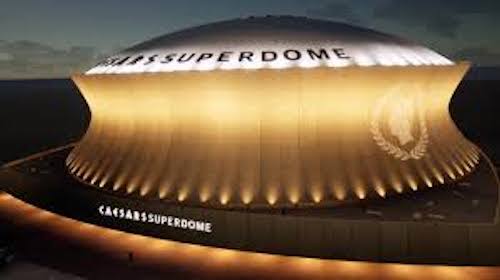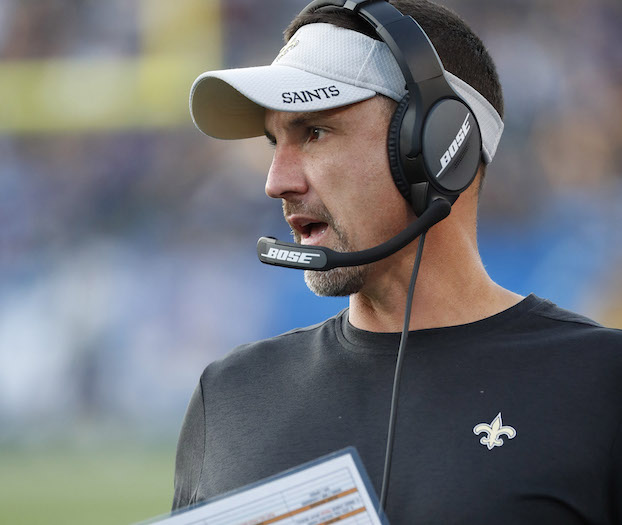Analysis: How the NFL got through the pandemic and to 2021
Published 8:07 pm Friday, July 23, 2021
By BARRY WILNER
AP Pro Football Writer
Saying the NFL is America’s most popular sport isn’t exactly brainiac territory. Arguing that it also dealt most successfully with the dangers and restrictions caused by COVID-19 should be just as obvious.
So as training camps open — on time — in preparation for the 2021 season, here’s a look at how the league navigated through a pandemic to play an entire schedule and the Super Bowl in 2020:
MARCH 2020
After having completed the combine in Indianapolis — business as usual — the NFL, like much of the rest of the country, went into remote mode. But not before the league and players completed an 11-year extension of the labor agreement that would serve both sides well for the rest of 2020 and beyond.
Free agency began minus in-person visits and medical checks as team facilities were shuttered. That didn’t make a difference for Tom Brady, who left New England behind and took his six Super Bowl rings to Tampa Bay.
Team owners opted to expand the playoffs by two teams to 14, adding more TV content (read: $$$$) for the postseason.
APRIL 2020
The league’s biggest offseason showcase, the draft, was a massive hit in Nashville the previous spring. It had been scheduled for Las Vegas but COVID-19 forced the NFL to reschedule Sin City for 2022 and go with a totally virtual draft.
And it was a hit, with Commissioner Roger Goodell overseeing matters from his man cave in suburban New York. The commish, who also drew no salary in ’20 as NFL employees took cuts, even received praise for his performance. How rare is that?
There were no pro days for the prospects as teams relied on game film and combine results. The NFL and the players union also agreed to conduct virtual offseason workout programs until every team was permitted to open its facilities.
MAY 2020
All five international games were moved back to home team stadiums as the coronavirus surged, and the league released a full regular-season schedule. While planning to play that schedule, the NFL formulated a ticket refund plan for canceled games or those held without fans. (A majority of games would be held in empty stadiums, and several would be moved to different dates, but no cancellations would occur.)
All in-person organized team activities (OTAs) during May became virtual. A limited number of teams were allowed to cautiously reopen their training facilities under very strict health protocols, while many were prohibited by government restrictions.
JUNE/JULY 2020
The Hall of Fame game in Canton, Ohio, which traditionally begins the preseason, was canceled.
Browns center JC Tretter, president of the NFLPA, wrote an open letter telling players they have to fight for “necessary COVID-19 protections” as the union supports the cancellation of the entire preseason schedule. At first the league cuts the exhibition games in half, then calls them all off.
Training camps, all held at team complexes, opened on time in late July with players tested daily for the coronavirus. Players who decided to opt out of the season were offered a stipend by the owners. Dozens will skip the 2020 campaign, as will five game officials.
AUGUST 2020
The NFL extended daily coronavirus testing for players and staff even though the positive test rate from the first two weeks of camp was less than 1%.
The Dolphins were the first franchise to announce they plan to open the gates to fans during the season.
SEPTEMBER 2020
The season kicked off in Kansas City before a socially distanced crowd of about 17,000 and the Chiefs beat Houston.
New stadiums in Los Angeles and Las Vegas opened minus fans.
Daily testing of players except on game day continued into the season. Coaches Vic Fangio of Denver, Pete Carroll of Seattle, Jon Gruden of Las Vegas, Sean Payton of New Orleans and Kyle Shanahan of San Francisco were fined $100,000 each and their teams $250,000 each when they improperly wore masks on the sideline.
Late in September, the Titans had the league’s first COVID-19 outbreak and their game with the Steelers is moved to later in the schedule.
OCTOBER 2020
More shuffling of the schedule occurred involving nine teams over a period of weeks as several teams had coronavirus outbreaks. Updated protocols included PCR testing on game days; use of masks in walkthroughs; only play callers permitted to wear face shields in lieu of masks or gaiters on the sideline. The NFL recommended that players on the sidelines not participating in a game or about to go on the field wear protective masks.
The Pro Bowl, scheduled for Jan. 31 in Las Vegas, was canceled.
NOVEMBER 2020
An outbreak for the Ravens forced the Thanksgiving night game against archrival Pittsburgh to be pushed back six days. All of Denver’s quarterbacks were barred by the league from playing against New Orleans for violating league protocols. The Broncos lost with rookie receiver Kendall Hinton, a former quarterback at Wake Forest, playing the position.
Gruden and the Raiders were fined a total of $650,000 and docked a sixth-round draft pick for repeated violations of the NFL’s COVID-19 protocols.
Nineteen teams had begun allowing partial in-stadium attendance by fans, with Dallas leading the way with nearly one-third of the seats at AT&T Stadium filled.
DECEMBER 2020
The 49ers moved two home games to Arizona after new coronavirus regulations put in place by officials in Northern California forced the team to find a temporary home.
All teams were ordered by the league to close their facilities for two days after games, with some exceptions. Only players needing medical attention for injuries or in rehab programs were allowed to enter the team complex. Coaches were permitted access, but needed to work in their offices, with all meetings conducted virtually.
The Ravens were fined $250,000 by the NFL for COVID-19 protocols violations.
JANUARY/FEBRUARY 2021
Having played games on all seven days of the week, the NFL concluded the regular season with no cancellations and nearly every team hosting all of its home games in its stadiums.
While Cleveland’s Kevin Stefanski, the NFL Coach of the Year, missed his team’s playoff opener against Pittsburgh, the playoffs were conducted on schedule. The NFL spent more than $75 million on testing alone.
The league also gave thousands of Super Bowl tickets to health workers and they saw Tampa Bay not only host the game, but play in it and, with Brady at the helm, finish off the pandemic-impacted season with a victory over Kansas City.
“I know we have learned to work in a very difficult environment, and we will do it again,” Goodell said. “That is one of the things we learned … hearing clubs and the NFLPA saying our relationship has never been stronger. I interpret that as a trust that has been built here that will take us forward and will be the long-lasting legacy of this season.”
———
More AP NFL: https://apnews.com/NFL and https://twitter.com/AP—NFL





